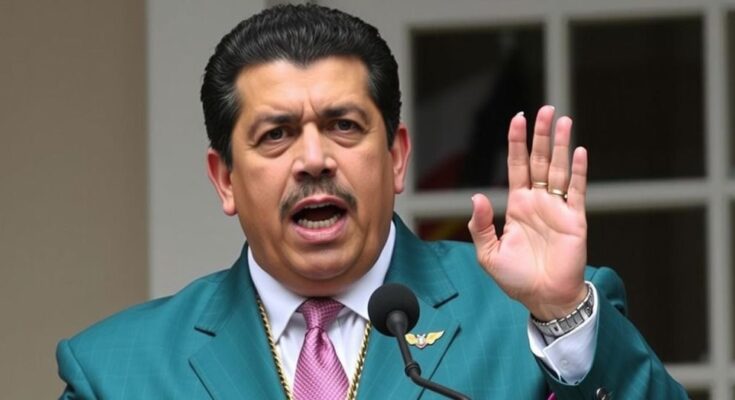Nicolas Maduro was sworn in for a third term as Venezuela’s President despite a disputed election and international calls for his resignation. His tenure has been characterized by a severe economic and social crisis affecting millions of citizens.
On Friday, Nicolas Maduro was inaugurated for a third term as President of Venezuela, extending his leadership despite facing widespread criticism over a disputed election held in July. The election had sparked significant international outcry and demands for Maduro to relinquish power amidst ongoing economic turmoil and a humanitarian crisis that has affected millions of Venezuelans over his nearly 12-year tenure. Maduro’s continued presidency raises concerns regarding the political climate in Venezuela and its implications for the country’s future stability.
Nicolas Maduro’s presidency has coincided with one of the most challenging periods in Venezuelan history, defined by severe economic downturns, soaring inflation, and social unrest. His governance has been under scrutiny due to allegations of electoral fraud and human rights violations, leading many nations to challenge the legitimacy of his leadership. The July election, which was marred by accusations of unfair practices, heightened tensions both domestically and internationally, further complicating the socio-political landscape in Venezuela.
In conclusion, Nicolas Maduro’s inauguration for a third term marks a critical juncture in Venezuela’s ongoing political crises, as his administration continues to grapple with both internal and external pressures. The international community remains divided on the recognition of his presidency, a situation exacerbated by the humanitarian crises plaguing the nation. Maduro’s leadership will likely continue to spark debate and resistance as Venezuela seeks a path forward amid profound challenges.
Original Source: www.usnews.com




